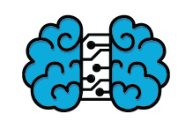According to an official close to the discussions, Japan is moving towards lighter laws controlling the use of artificial intelligence (AI) than the European Union, as it turns to the technology to stimulate economic development and position it as a leader in sophisticated processors.
According to the individual, who declined to be identified because they were not licenced to speak with the media, the goal by the end of the year is to hammer out a strategy for AI that will likely be closer to the US attitude than the rigorous standards championed by the EU.
A milder Japanese stance might stymie EU efforts to establish its laws as a worldwide standard, with obligations such as corporations reporting copyrighted material used to train AI systems that produce content such as text and images.
Thierry Breton, EU Industry Commissioner, is in Tokyo this week to advocate the EU's approach to AI rule-making and to enhance collaboration in semiconductors.
The government official did not go into detail on how Japan's laws would differ from those of the EU.
Prof. Yutaka Matsuo of The University of Tokyo, the chair of the government's AI policy committee, branded the EU's laws "a little too strict," saying it is "almost impossible" to pinpoint copyrighted content used for deep learning.
"With the EU, the issue is less about how to promote innovation and more about making already large companies take responsibility," Matsuo, who also heads the Japan Deep Learning Association and serves as an independent director on the board of Masayoshi Son's SoftBank Group, said.
Advances in generative AI by companies like Microsoft-backed company OpenAI are generating both excitement and alarm owing to the potential to revolutionise industry and society in general.
AI has such promise that the United States and other industrial democracies are racing China to develop technologies such as improved semiconductors and quantum computers.
"There are things that are really a concern, and I think these things should probably be a concern for any democracy," Breton added.
"With likeminded partners and friends like Japan or the US, I think it's important to explain what we did," Breton said of the EU's regulatory approach.
AI might assist Japan in dealing with the population loss that is producing a manpower deficit.
According to the source, it might also boost demand for sophisticated processors that Rapidus, a government-backed startup, aims to develop as part of an industrial programme aimed at reclaiming Japan's lost technological advantage.
According to experts, Japan's computing capacity, defined as the availability of graphics processing units (GPUs) necessary to train AI, lags substantially behind that of the United States.
"Even if you increased the GPUs in Japan by tenfold, it would still be less than what OpenAI has available," Prof. Matsuo stated.

%20(1).png)
